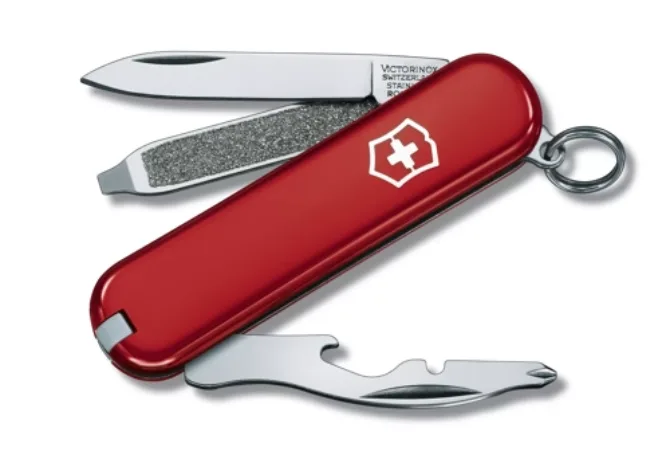
Excising Useless Words Can Turn Ordinary Prose into Outstanding Writing
Useless words take up space, add little meaning and disrupt sentence harmony. Writers and speakers typically employ useless words out of habit and as a result of inadequate editing. They owe their audiences better.
Tightly written, evocative sentences are more important than ever in an age of shrinking attention spans and quick swipes on smartphones. Readers and listeners can choose to waste their time. Writers and speakers can’t.
 Gary Kinder, a successful author, felt so strongly about extracting useless words, he created WordRake, an automated editing tool to identify them in writing and speeches and suggest improvements. Kinder conducts seminars on writing and uses his legal training to assist attorneys make their writing less obtuse. His blog offers useful advice to anyone willing to pay attention.
Gary Kinder, a successful author, felt so strongly about extracting useless words, he created WordRake, an automated editing tool to identify them in writing and speeches and suggest improvements. Kinder conducts seminars on writing and uses his legal training to assist attorneys make their writing less obtuse. His blog offers useful advice to anyone willing to pay attention.
Kinder’s guiding principle: “Every word not conveying meaning detracts from every word trying to convey meaning. When you remove the unnecessary words, you allow the others to capture your reader.”
A major deterrent to expunging useless words is a failure to recognize them. In his latest blog post, Kinder offers two examples of word debris culled from Jack London’s The Sea-Wolf:
- London: In point of fact, the chief vent to this primal melancholy has been religion in its most agonizing forms.WordRake Edit: The chief vent to this primal melancholy has been religion in its most agonizing forms.
- London: It was at this moment that I chanced to glance at Johnsen.WordRake Edit: At this moment I glanced at Johnsen.
The first example exposes the unnecessary use of deadwood phrases like “In point of fact”. The second example shows how streamlining a sentence makes it more dramatic. As Kinder points out, London has a well-earned reputation for terse, vivid writing, which shows that even a writer of his caliber can benefit from editing.
In writing and speeches, editing is not a dirty word.
 DIY Editing is Critical Skill
DIY Editing is Critical Skill
Using an automated editor can help. But writers and speakers won’t appreciate the value of editing as much if they don’t know how to rake the debris from their writing or rely on a gentle reader to point out their useless words.
In writing and speeches, editing is not a dirty word. Editorial pruning is an essential skill to reveal your meaning and compel readers and listeners to pay attention. Great writers should be even greater editors of their own work.
Contemporary writers and speakers have the advantage of using striking visual communications to enhance their words. Image selection can be the equivalent of choosing crisp, lively words for writing intended to appear on websites and social media. For speakers, smart use of PowerPoint slides can accentuate or dramatize key points.
Leveling the Field
Individual writing and speaking skills vary greatly. Editing can level the field. Proficient writers can produce polished copy quickly. Others may struggle through multiple rough drafts. In both cases, editing can smooth rough edges, enhance transitions and delete useless or unnecessary verbiage. Editing also helps to detect and remedy missing-word syndrome, a byproduct of typing too fast.
A common mistake in writing and speaking is not starting with the best, most compelling fact or story. A deeper form of editing is recognizing that the lead is buried in the middle of your copy or speech. This type of editing requires rewriting and possibly rethinking the line of attack. It may seem like drudgery or even defeat, but the result is worth it when readership and viewership is enhanced.
 If Jerry Can Do It…
If Jerry Can Do It…
Jerry Seinfeld is considered one the best comedians in America. He has a routine for writing and testing his jokes that should inspire all writers and speakers. Despite all his fame, Seinfeld shows up at local comedy clubs unannounced to try out a new crop of jokes. The response he gets are cues, he says, on how to sharpen his punch lines and delivery. Even if you aren’t writing jokes, getting friendly feedback can inform your writing and speaking.
Pressing deadlines are often used as an excuse for skipping editing. Instead of viewing time pressure as an enemy, use it as motivation. There is no time requirement for good writing and effective editing. Fast or slow is less relevant than disciplined and edited.
Writer’s block is another myth. Do what it takes to express what you need to express, whether in a memo or a memoir. Don’t let supposed writer’s block justify procrastination to write and edit. Writer’s block is a distraction, not an obstruction.
 The Dread of Autocorrect
The Dread of Autocorrect
Modernity presents its own writing challenges. Twitter (X), op-eds and letters to the editor have word limits. But the greatest disruptor of the digital age is Autocorrect. A slip of the finger on the keyboard can awaken this digital demon to “correct” what you wrote. The correction often is not correct. Careful editing of what you write on a computer or smartphone is the only way to catch irksome, unintended and sometimes embarrassing changes. Autocorrect isn’t editing software.
Books by Gary Kinder
If you want to see how well Kinder follows his own advice in writing, check out his first novel Victim: The Other Side of Murder or his New York Times bestseller Ship of Gold in the Deep Blue Sea. He also authored Light Years: An Investigation into the Extraterrestrial Experiences of Eduard Meier, the story of a Swiss farmer’s claim of being contacted by extraterrestrials.
Despite graduating from the University of Florida Law School, Kinder says he worked as a “busboy, bartender and bellman” to have time to write his first book, which took him seven years to complete. His second book, about a man and aliens, was serialized in Playboy.
Kinder now lives in Seattle.
Our Previous Blog on Useless Words
We’ve written on this subject before in 2015, quoting celebrated novelist James Michener as describing himself as “not a very good writer, but an excellent rewriter”.
Our advice then holds true now: “Attack your sentences like weeds in a garden. Save the blooms, pull the rest. Give readers what’s useful, not a bunch of useless words.”




